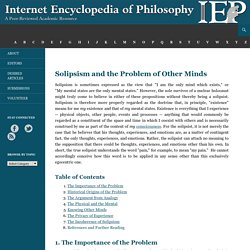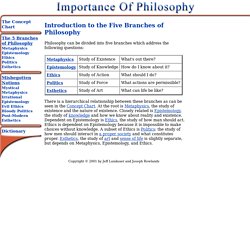

Twenty-two Arcana of Tarot, a Free Online Course. The Concept of Irony. The Concept of Irony With Continual Reference to Socrates Om Begrebet Ironi med stadigt Hensyn til Socrates 1841 KW2, SKS1, SV8 This early work was Kierkegaard's dissertation, and addressed irony, particularly Socratic irony.

The judges at its defence agreed that it was an intelligent and noteworthy work, but were concerned about its style, which some thought to be ambling, wordy, and idiosyncratic. Kierkegaard petitioned the king successfully for permission to submit the work in Danish rather than in Latin, since Danish, he felt, was more suitable to the material. On the priority of salient meanings: Studies of literal and figurative language - R. Giora. Jiva. A living being, or any entity imbued with a life force In Hinduism and Jainism, the jiva (Sanskrit: जीव, jīva, alternative spelling jiwa; Hindi: जीव, jīv, alternative spelling jeev) is a living being, or any entity imbued with a life force.[1] The word itself originates from the Sanskrit jivás, with the root jīv- "to live".[2] It has the same Indo-European root as the Latin word vivus, meaning "alive".

Jiva in Jainism[edit] Jiva in Hinduism[edit] Upanishadas[edit] बालाग्रशतभागस्य शतधा कल्पितस्य च । “If the tip of the hair were to be divided in to one hundred parts and each part was divided into 100 more parts, that would be the dimension of the Jiva(soul) ’ Śvetāśvatara Upaniṣad (5.9) Matthew effect.
For unto every one that hath shall be given, and he shall have abundance: but from him that hath not shall be taken even that which he hath.

Sociology of science[edit] In the sociology of science, "Matthew effect" was a term coined by Robert K. Merton to describe how, among other things, eminent scientists will often get more credit than a comparatively unknown researcher, even if their work is similar; it also means that credit will usually be given to researchers who are already famous.[3][4] For example, a prize will almost always be awarded to the most senior researcher involved in a project, even if all the work was done by a graduate student. This was later formulated by Stephen Stigler as Stigler's law — "No scientific discovery is named after its original discoverer" — with Stigler explicitly naming Merton as the true discoverer, making his 'law' in example of itself. Examples[edit] Education[edit]
About atheism - Atheist Alliance International. We don’t know when the first theists appeared among humankind although there is some evidence it was at least 60,000 years ago.

We don’t know where or when it happened, but we can imagine one of our distant ancestors stretched his arms skywards and cried for help. Triggered by the death of a loved one, or impending disaster, he begged something bigger than himself to stand by him. That act triggered a cultural change that grew and evolved until it dominated almost all human societies. It is still with us today. EREBUS (Erebos) - Greek Primordial God of Darkness.
Spiritual evolution. Spiritual evolution is the philosophical, theological, esoteric or spiritual idea that nature and human beings and/or human culture evolve: either extending from an established cosmological pattern (ascent), or in accordance with certain pre-established potentials.

The phrase "spiritual evolution" can occur in the context of "higher evolution", a term used to differentiate psychological, mental, or spiritual evolution from the "lower" or biological evolution of physical form.[1] Within this broad definition, theories of spiritual evolution are very diverse. They may be cosmological (describing existence at large), personal (describing development of an individual), or both. They can be holistic (holding that higher realities emerge from and are not reducible to the lower), idealist (holding that reality is primarily mental or spiritual) or nondual (holding that there is no ultimate distinction between mental and physical reality). Precursors to the idea[edit]
Solipsism and the Problem of Other Minds. Solipsism is sometimes expressed as the view that "I am the only mind which exists," or "My mental states are the only mental states.

" Deadpool 2 and “Fridging,” explained. The most controversial thing that happens in Deadpool 2 takes place in the first few minutes, even before the opening credits roll.

Deadpool doesn’t finish a mission. One of the men from that incomplete mission comes after Deadpool and fires a gun into his home. Vanessa, the love of Deadpool’s seemingly immortal life, is hit by a stray bullet, which kills her. There’s now a debate on whether Vanessa was “fridged,” a term for a comic book trope in which the girlfriend or wife of a hero dies to further said hero’s motivations and story. The trope reduces the girlfriend or wife to a plot device. The controversy was compounded by comments from Deadpool 2’s co-writers Rhett Reese and Paul Wernick (who wrote the screenplay with star Ryan Reynolds), who said they didn’t know the trope existed. “I think at some point somebody just said, ‘Y’know, Deadpool kind of works best when he’s had everything taken away from him, when he suffers,’” Reese told Vulture.
Branches of Philosophy. Philosophy can be divided into five branches which address the following questions: There is a hierarchical relationship between these branches as can be seen in the Concept Chart.

At the root is Metaphysics, the study of existence and the nature of existence. Closely related is Epistemology, the study of knowledge and how we know about reality and existence. Dependent on Epistemology is Ethics, the study of how man should act. Ethics is dependent on Epistemology because it is impossible to make choices without knowledge. Essayer. Wordsworth.